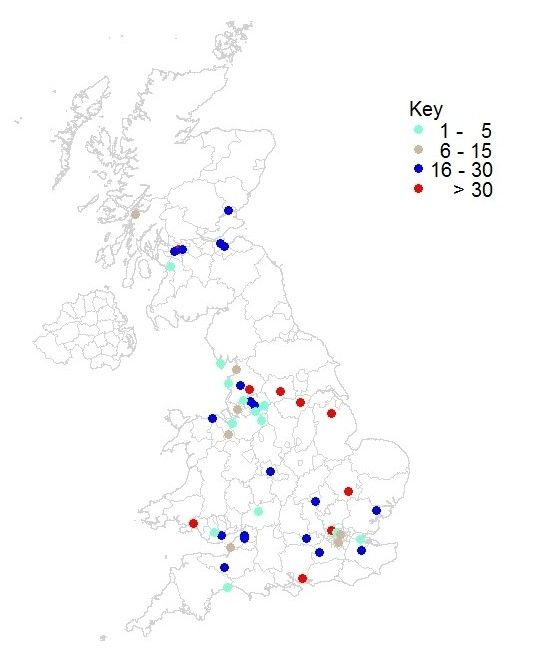The Meaning of ELF
How a Scottish led research project aims to improve emergency surgery outcomes

A Surgical Shift
A new study led by Professor Susan Moug aims to evaluate whether the use of a recognised frailty score correlates with outcomes following emergency laparotomy in patients aged 65 and over. Frailty has been shown to be present in around 25% of older surgical patients with high pre-operation frailty scores being associated with increased post-operation complications. This nationwide study aims to gather fresh data from older patients and improve outcomes for patients undergoing emergency laparotomy.
Patient centred care is what surgery is all about.
The Emergency Laparotomy and Frailty (ELF) study was led by The Royal Alexandra Hospital in Paisley. Over 40 000 patients undergo emergency laparotomy surgery (opening of the abdomen) every year in the U.K. This type of surgery is usually for bowel obstruction (blockage) or perforation (a hole due to a peptic ulcer for example) and carries the highest risk of a patient not surviving: compare your risk with elective or planned surgery of 2-4%, to emergency laparotomy (10-15%). If you are an older adult (over 65 years of age) you are more likely to require this emergency life-saving surgery and unfortunately, you also carry the greatest risk of not surviving (20% of patients will not live for 30 days after their surgery). Clearly strategies need to be developed to improve outcomes for patients.
Frailty is a term almost all will understand.
There are validated scores for frailty (which is common in older adults) and the ELF study sought to apply these scores to all older adult patients undergoing emergency surgery to see if frailty could tell us who would do better and who would do worse post-surgery. It was hoped that the results from the ELF study could improve communication and increase the understanding of the risk of emergency surgery for older patients, and from this encourage the development and improvement of treatments for those patients.
“The collaboration between Surgeons and healthcare professionals during the study was overwhelming”
To be successful the study needed to recruit 500 patients within 3 months. All hospitals in the U.K. could take part and any patients volunteering to be involved had to be over 65 years old and undergoing emergency laparotomy. The Bowel Disease Research Foundation made a funding contribution, and the team made a cheeky ELF logo and marketed the study using social media like twitter - @ELFStudy - to spread awareness and recruit new hospitals to become involved. In the end, they registered interest from 52 hospitals across the U.K.
At the end of the study data had been gathered from 49 surgical units and 952 patients - nearly double the initial target and all within the timeframe set. For comparison with other studies, under-recruitment is commonplace, with study time extensions often put in place. The social campaign to spread awareness generated over 500 Twitter followers and over 140,000 impressions, making it clear the surgical community were engaged with the study and keen to spread awareness and participation.

Geographical Distribution of participating study sites across UK.
Surgeons as key collaborators
The ELF study is only one example of such exciting collaborations in the U.K. surgical community. It does not matter whether you work in a small, large or medium sized hospital like the RAH Paisley, are in a city or way out in the Scottish Countryside – with towns like Oban over recruiting, any surgeon now has the chance to lead or help with research that will change patient outcomes for the better. Patients are able to become involved and have been listed as authors on research publications with some being local leads for projects.
Times have already changed.
The impressive response to The ELF Study has established a research network for a follow up study called UPTime – a physical activity intervention aiming to improve outcomes for these frail patients undergoing surgery. The study also introduced the Royal Alexandra Hospital to a worldwide surgical audience through social engagement and using the ♯colorectalresearch and ♯crstrials, which helped facilitated the development of The Plato Project – a study into surgeons personalities evaluating the impact of individual surgeon personality on decision making. With a steering group from the USA, Canada, Australia, New Zealand, Europe and the U.K, this Scottish led study aims to answer two questions: across the world, what is the typical surgical personality and does the surgeon’s personality influence surgical decision-making in key areas?
With thanks to Susan Moug and the Elves
Learn More about the ELF Study
Create an event with world changing ideas: businessevents.visitscotland.com | legends@visitscotland.com